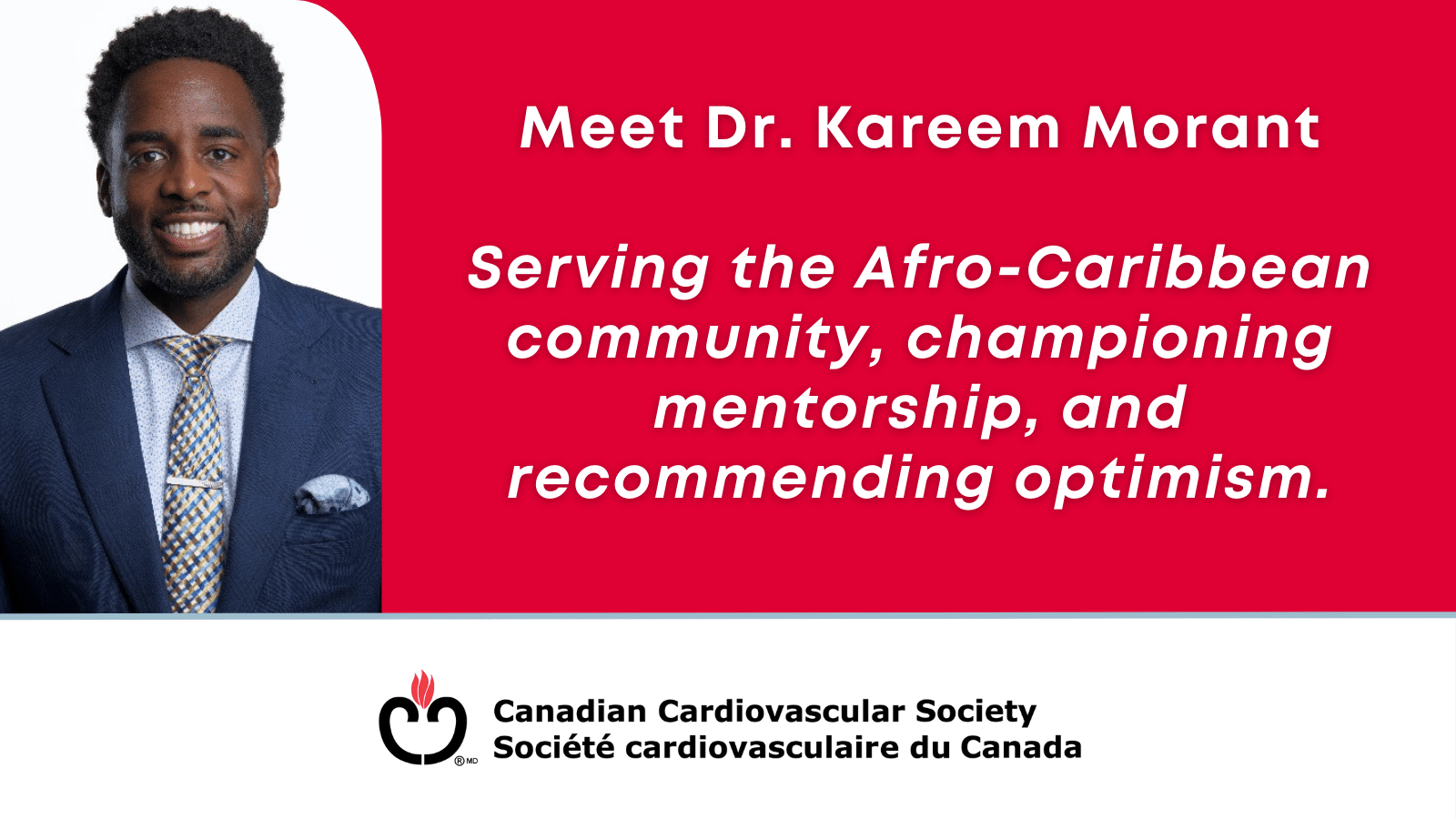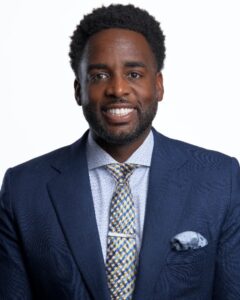
At the heart of the Canadian Cardiovascular Society’s guiding principles is a steadfast commitment to Equity, Diversity, and Inclusion (EDI). We believe that our strength as an organization stems from embracing the diverse voices and experiences within our community. As we commemorate Black History Month, we reflect on how this commitment guides our actions and shapes our vision for the future of cardiovascular health.

The CCS recognizes and embraces the diversity within the Black community and is home to several members that identify as African, Caribbean, and Black. Dr. Kareem Morant, FRCPC, FACC, FASE, and CCS member, describes his heritage as proudly Jamaican-Canadian and says that serving the Afro-Caribbean community has always been an important part of his personal mission.
“I have seen firsthand the underrepresentation of Black physicians in medicine (and particularly in cardiovascular medicine)”, he said. “I have participated in mentorship programs and events at multiple educational levels, … to make sure that the challenges I faced being often the only Black physician do not continue.”
Dr. Morant participates in the Black and Indigenous Internal Medicine Interview pathway at University of Toronto. “By interviewing candidates who have self-identified as Indigenous or Afro-Caribbean, I think I have helped to make interviewees more comfortable as well as give a unique perspective to the interview committee.”
As director of the Heart Failure and Amyloid Clinic at the North York General Hospital, Dr. Morant assesses and treats many patients suspected of having or diagnosed with the hereditary v142I type of ATTR-CM, which almost exclusively affects people of Afro-Caribbean descent. “Through my interest in [Amyloidosis], I have been able to meet many people from my community and educate health care professionals, improving recognition and treatment of this disease.”
In the context of Black History Month, Dr. Morant emphasizes the significance of recognizing and celebrating the contributions of Black individuals in cardiovascular health. “Acknowledging the stories of health care professionals serving large and often underserved communities, or who made significant research contributions without being recognized … is an important step in re-learning our history.”
Mentorship for those who have traditionally been overlooked for leadership positions within the CCS is a crucial next step, asserts Dr. Morant. This indeed is a priority area for the CCS EDI committee, which is chaired by Dr. Sonia Anand and supports the CCS in establishing strategic priorities and action plans to uphold and advance our EDI values.
“We know it’s critical to have a diversity of perspectives and experiences within the makeup of both CCS leadership and CCS membership and we are working diligently to ensure this is the case,” said Dr. Sonia Anand. “The CCS EDI committee is dedicated to championing EDI best practices and dismantling systemic barriers that hinder the full participation of traditionally underrepresented groups in every facet of CCS activities. Our unwavering commitment is to foster an inclusive environment where every member feels not only welcome but also valued.”
Dr. Morant acknowledges the strides made by CCS in supporting diversity, equity, and inclusion but emphasizes the need for continued progress. He offers these words of encouragement to the next generation of aspiring Black professionals considering a career in healthcare, particularly in cardiology:
“We need you. We need diverse faces from all backgrounds. This will be imperative in improving the care of all Canadians – not only Black Canadians.
Don’t be intimidated. The future is bright, and things are definitely changing!”
Other News
See AllCelebrating National Volunteer Week at CCS
April 18, 2024
CCS members have a diverse range of skills, experience, interests, and backgrounds. One common trait...
CCS News MembershipCCS Member Profile: Dr. Aaron Spooner
March 18, 2024
A second chance for patients through minimally invasive cardiac surgery, top tips for Trainees and...
MembershipNominate a Colleague for the 2024 CCS Recognition Awards
March 8, 2024
The CCS is proud to recognize members for outstanding contributions to the field of cardiovascular...
CCS Recognition Awards Membership